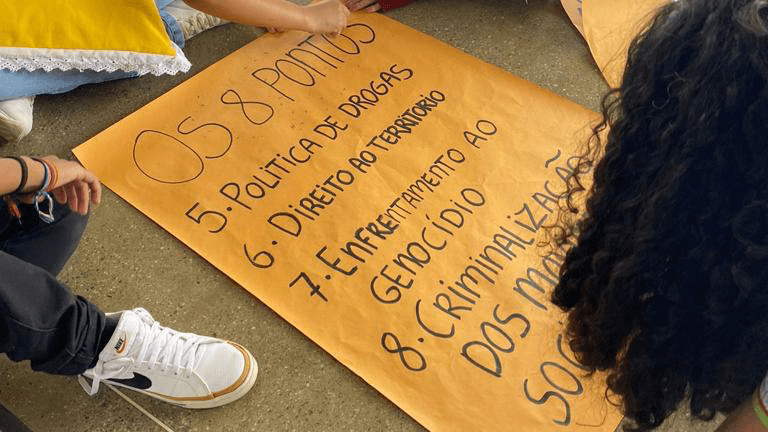
At the heart of terre des hommes schweiz (tdhs)’s program is the empowerment of young people as actors of change. terre des hommes schweiz supports its partner organizations and youth-led initiatives that aim to promote a culture of peace in countries such as Brazil, Colombia, and El Salvador. In these contexts, marked by shrinking space for civil society and increasing polarization tendencies, fostering social cohesion with a focus on young people is highly relevant. However, these political developments bring additional risks to the implementation of projects, like public threats and attempts to criminalize and delegitimize human rights organizations. In the face of these challenges, terre des hommes schweiz attempts to innovate its funding strategies and modalities.
In a first step, emergency funds were established to readjust to volatile and fragile situations. These funds enable the organization to respond agilely to the increasing security risks and contribute financially to protecting human rights defenders. They can also be applied to partner organizations’ psychosocial or legal support measures intended for their members. In the last years, it has become clear that additional, unrestricted funds were essential to building the resilience of civil society in challenging times.
Another learning was that civil society networks are important spaces for joint analysis, strategizing, and advocacy in countries affected by growing authoritarianism and violence. Therefore, terre des hommes schweiz plans to allocate additional funds to such networks, especially to those that are strategically involved in countering anti-democratic tendencies.
With open and flexible grant-making strategies, terre des hommes schweiz strives to support initiatives that do not have access to formalized funding schemes. These grants serve as a testing ground for young activists, allowing them to experiment with unconventional solutions and contribute to strengthening youth activism from the grassroots level. This approach also encourages the emergence of new civil society actors. Strengthening local organizations under threat also means enabling more core funding and being less restrictive with so-called “overhead” costs (indirect expenses necessary for an organization’s functioning, such as administrative and operational costs) in project budgets.
Another example of flexible core funding is the support of a Civil Society Forum on Public Security in Northeast Brazil, which aims at coordinating NGO advocacy on security policies in nine federal states. With the short-term financial support of terre des hommes schweiz, this network could cover the costs of organizing conferences to develop proposals for public policies.
For terre des hommes schweiz, rethinking and diversifying funding modalities is a crucial step in shaping fair partnerships in coherence with the need to “decolonize aid.” Observing the fragile state of democracy and increased pressure on civil society worldwide, terre des hommes schweiz is embarking on an exploration of participatory grant-making approaches. Participatory grant-making is an approach to funding where decision-making power is shared with the communities or organizations being funded. It involves them in the whole process of grant allocation, from identifying needs to selecting projects or initiatives to be funded. It aims to shift the power dynamics in traditional grant-making processes and promote more equitable partnerships.
This is an important reflection process in the development sector, where joint learning and exchange of experience, as well as a strategic debate with institutional donors and foundations, are needed.